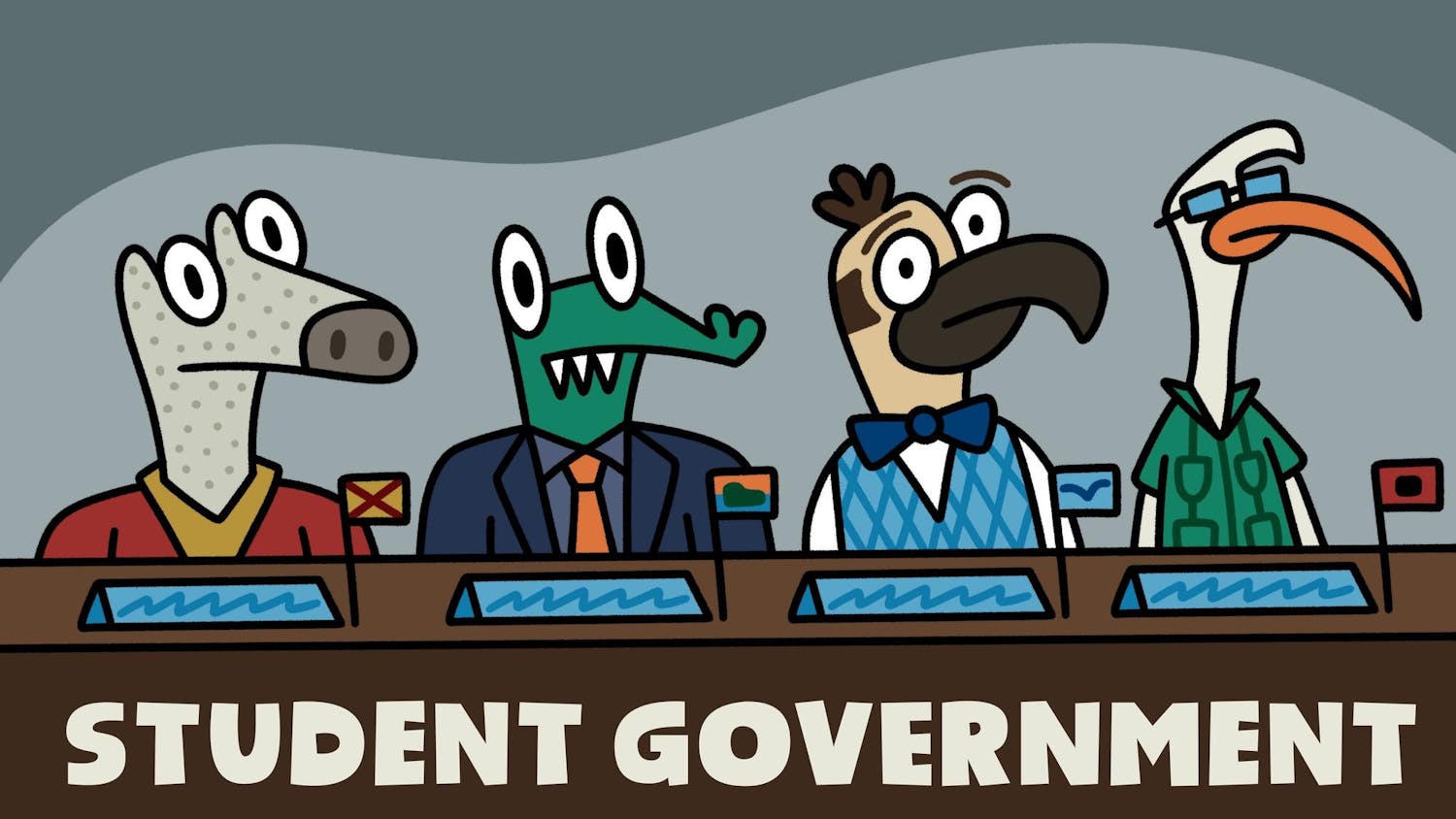The largest on-campus protest in UF’s history began with just a photograph. In 1967, UF punished a student for breaking a rule that hadn’t been written yet. Her name was Pamme Brewer, and her crime was posing nude for a student humor magazine, Charlatan.
At a time when young men were dying in Vietnam in the name of freedom, one woman risked everything for her own. It was a bitter irony of the era — liberty celebrated abroad was punished at home. Across American campuses, a generation unwilling to stand by grew more frustrated by the day. Social change had outpaced its institutions, no longer able to be contained. Outside the classroom, students were learning a different kind of lesson: Education without free expression isn’t education at all.
Even by prudish academic standards, Brewer’s photo was relatively tame. The photo was artful and lacked any erotic quality. But in those days, it was simply something college girls didn’t do.
UF quickly responded with disciplinary action, arranging a kangaroo court in Tigert Hall, the administration building. The university was attempting to snuff out the problem before anyone could interfere. The news spread like wildfire across campus — drawing a mob of students who flooded the building, pounding on the walls and windows of the hearing. Administrators were forced to postpone and move to the Law School Auditorium to allow the public to watch.
The affair became a nationwide sensation with newspapers like The New York Times reporting it from coast to coast. Walter Cronkite had arrived with a CBS news crew to cover all the action. The American Civil Liberties Union fully financed Brewer’s legal team. All eyes were on Gainesville. By then, it was clear Brewer wasn’t the only one on trial. The institution was finally being questioned, and the old way of doing things seemed to be losing fast.
On the day of the hearing, the repurposed auditorium grew so crowded many students were forced to perch on windowsills or railings to allow more of the mob in. Once Brewer arrived, the building broke out into a roar of applause. Campus had found its hero. Brewer was there to fight the good fight. Her classmates understood her grace and courage as being an extension of their common will.
There was no rule in place to enforce upon Brewer, so UF fell back on an old fashioned practice called in loco parentis (“in place of the parent”). This gave universities the authority to police students’ morality as if they were children. By the mid-1960s, this doctrine was quickly falling out of favor across the nation. Many students challenged the notion of higher education needing to play the role of “moral guardian” for adults. UF claimed it was enforcing decency when it was really enforcing fear.
Brewer’s attorney, Selig Goldin, argued UF’s punishment violated due process and the First Amendment. A public university, he said, cannot claim parental authority while holding the power of the state. Goldin dismantled the administration’s case, exposing how the punishment existed only to spare the university its own embarrassment.
When the verdict came, the charges were dismissed. Brewer’s victory helped end in loco parentis across the South. Gainesville had grown up overnight.
The story is thoroughly detailed in The Alligator’s 1967 archives and a blog post by Bill Killeen, editor and publisher of Charlatan. The moment has since been framed as a milestone in Southern campus politics, but change is always more gradual than what the mythology implies.
Of course, Brewer’s case was never really about the photograph. The university disguised its need for control as virtue. No one, especially an institution, should decide what decency means for others.
Brewer received hundreds of letters from both fans and critics across the country. In classic rebel fashion, the worst of the letters were collected and promptly published in the next issue of Charlatan. The joke, as always, was on the prudes.
It’s crucial to remember these stories today more than ever. While nostalgic, they remind us to remain vigilant. The instinct that tried to stop Brewer never really went away. Every era finds its own polite way to stifle expression. Institutions just learned to speak in the language of PR and conduct policy.
Today, mediums of free expression have never been more accessible — or more monitored. The tools we built to amplify our voices now double as instruments to measure them. Control has gone wireless.
Just last month, UF revoked the emeritus status of retired law professor Jeffrey L. Harrison after posting on Facebook about the killing of conservative activist Charlie Kirk. “I did not want for him to die,” Harrison wrote, “I reserve that wish for Trump.” Within days, the university had rescinded his title, citing “concerns” and adherence to policy — a penalty announced via social media. Gainesville once again found itself at the center of a free-speech debate.
Brewer had the courage to make the university face its own hypocrisy. Who gets to decide what’s acceptable to say, to show, to be? Every generation of students faces these same questions. The answer hasn’t changed. An institution that silences its students and faculty isn’t one worth having.
Dylan Santana is a 21-year-old UF media production, management and technology junior.






